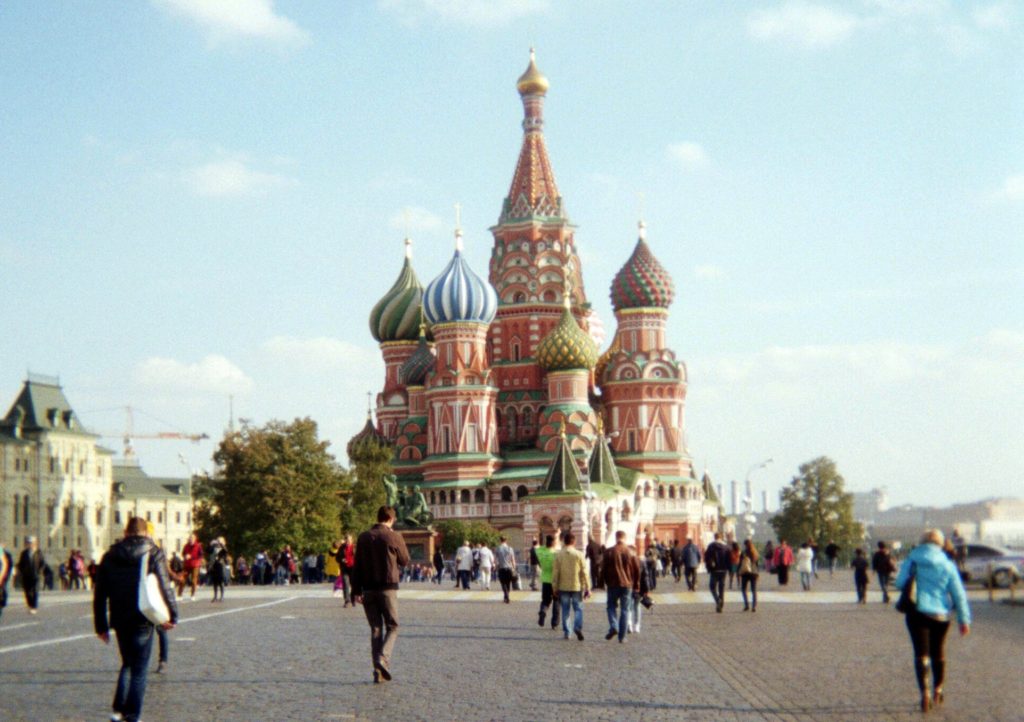
By Jeff Hawn, Responsible Statecraft, 8/12/21
Jeff Hawn is a Ph.D. candidate in the Department of International History at The London School of Economics and Political Science. His research focuses on the 1993 Russian constitutional crisis and the post-Cold War international order.
On June 21 2021, the Russian prosecutor general’s office added the New York-based Bard College to its growing list of undesirable foreign organizations. In practice, this will mean Bard will be unable to continue its long-running partnership with St. Petersburg State University which has helped thousands of U.S. and Russian students undertake educational exchanges. Placing Bard on its list of undesirable foreign organizations is the latest step by the Russian government to limit avenues for cultural, diplomatic, and educational exchange with the United States. The U.S. government has done little to counteract these limitations, a trend that will be counter-productive in the long term.
The United States is engaged in an active and often hostile competition with Russia, but, instead of investing in building a robust network of Russian experts, Washington has neglected to invest in the field. The damage is well documented. In 2012, Title VIII funding, which authorizes federal money to be directed to Slavic language training and advance research, was cut sharply from $4.5 million to $3 million per year. This is part of a growing trend in the United States that applies across government, academia, and NGOs, where, despite increased confrontation with Moscow, knowledgeable experts are competing for ever fewer resources.
George Kennan, the oft-cited dean of Russian studies in the 1940s and 1950s, argued that, in order to actually understand Russia, you needed to get Russian mud on your boots. In other words, it’s not enough to read about the country, but rather it’s important to live there and understand its complex and often misunderstood history and culture.
The experience of the Cold War seemed to prove Kennan right. Having had only a few dozen Russian experts in the 1950s, by the 1990s the United States boasted several hundred across government and academia. Yet many had never had the opportunity to visit Russia, and thus their perceptions of its foreign and domestic policies were not necessarily well grounded. Hence, for many years U.S. experts believed the Soviet Union was more viable than it truly proved to be.
The collapse of the USSR inflicted an additional blow to Russian studies in the United States. An overconfidence and deep misunderstanding of the implications of the death of communism led the U.S. talent pool on Russia to dry up. That pool has not been replenished despite increasing tensions with Russia. The fault lies largely with the U.S. government’s priorities.
Unlike the 1950s, there has been no increase of funding for Russian studies and indeed the macro trends in Washington seem to act more to deter those who want to engage in Russian studies rather than encourage them. The outsourcing of background checks for security clearance to lowest-bid contractors means that would-be Russian experts applying for entry-level federal positions face daunting obstacles. Even if they are somehow able to navigate the highly dysfunctional hiring process, they still face a very arduous clearance ordeal that can result in disqualification, often on the grounds of concern over foreign contacts or connections acquired during educational or cultural exchanges. The lesson for would-be Russian scholars is: why bother trying to cultivate expertise if it will only serve to disqualify you?
That is not to say Washington is bereft of genuine expertise. But the increasingly polarized environment that rewards jingoism and punishes nuanced analysis means that many experts have been left on the sidelines.
Read full article here.
Sadly this the new Amerika. One only has to look the failing education system here. It seems the only diplomats that get hired are people that do not know the countries history that their set to. The last diplomat to Russia was joke on the US. It only going to get worse until countries refuse to let them in the country. The Amerikan govt. only knows that everything is nail so bring a bigger hammer.
https://www.msn.com/en-us/news/crime/granderson-why-biden-should-not-reward-rahm-emanuel/ar-AANA4ak?ocid=msedgdhp&pc=U531